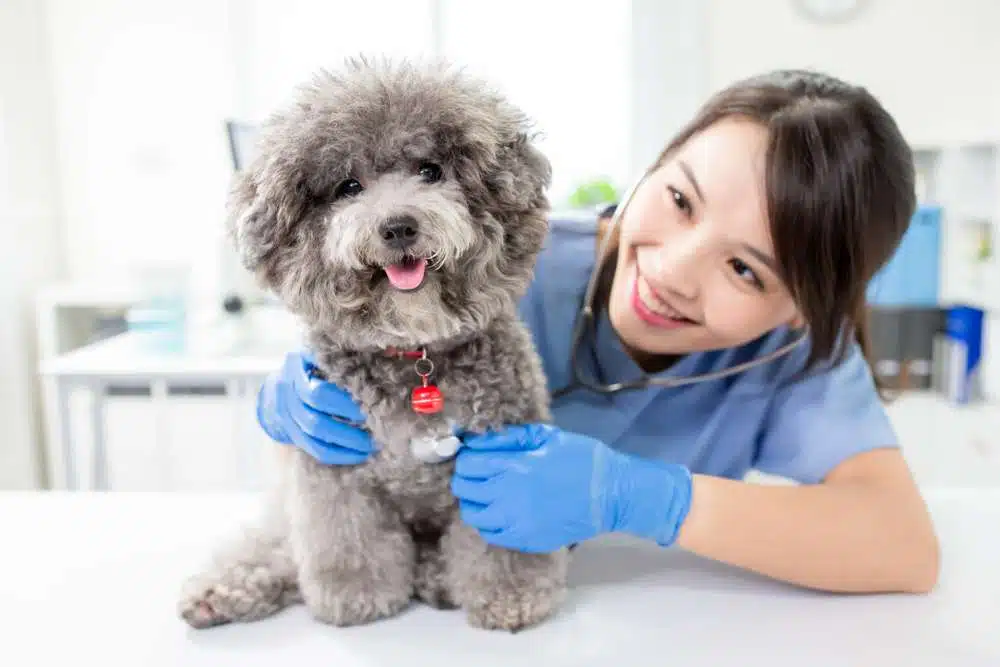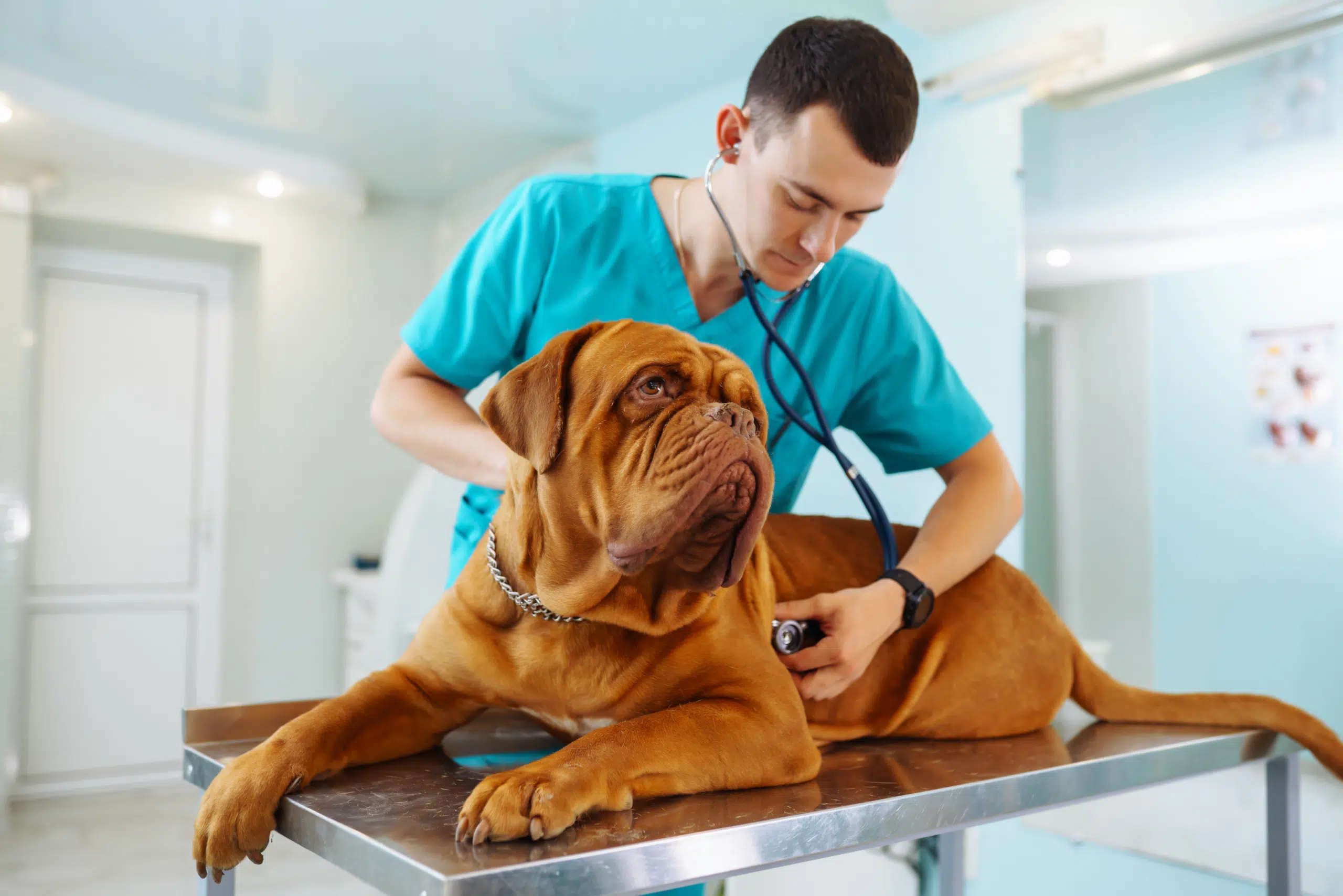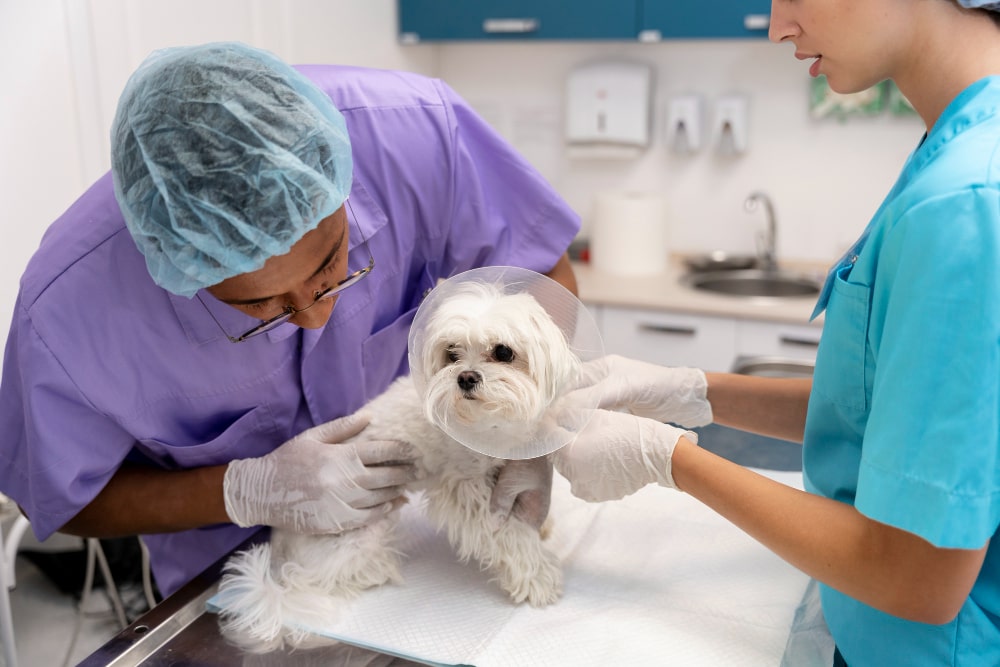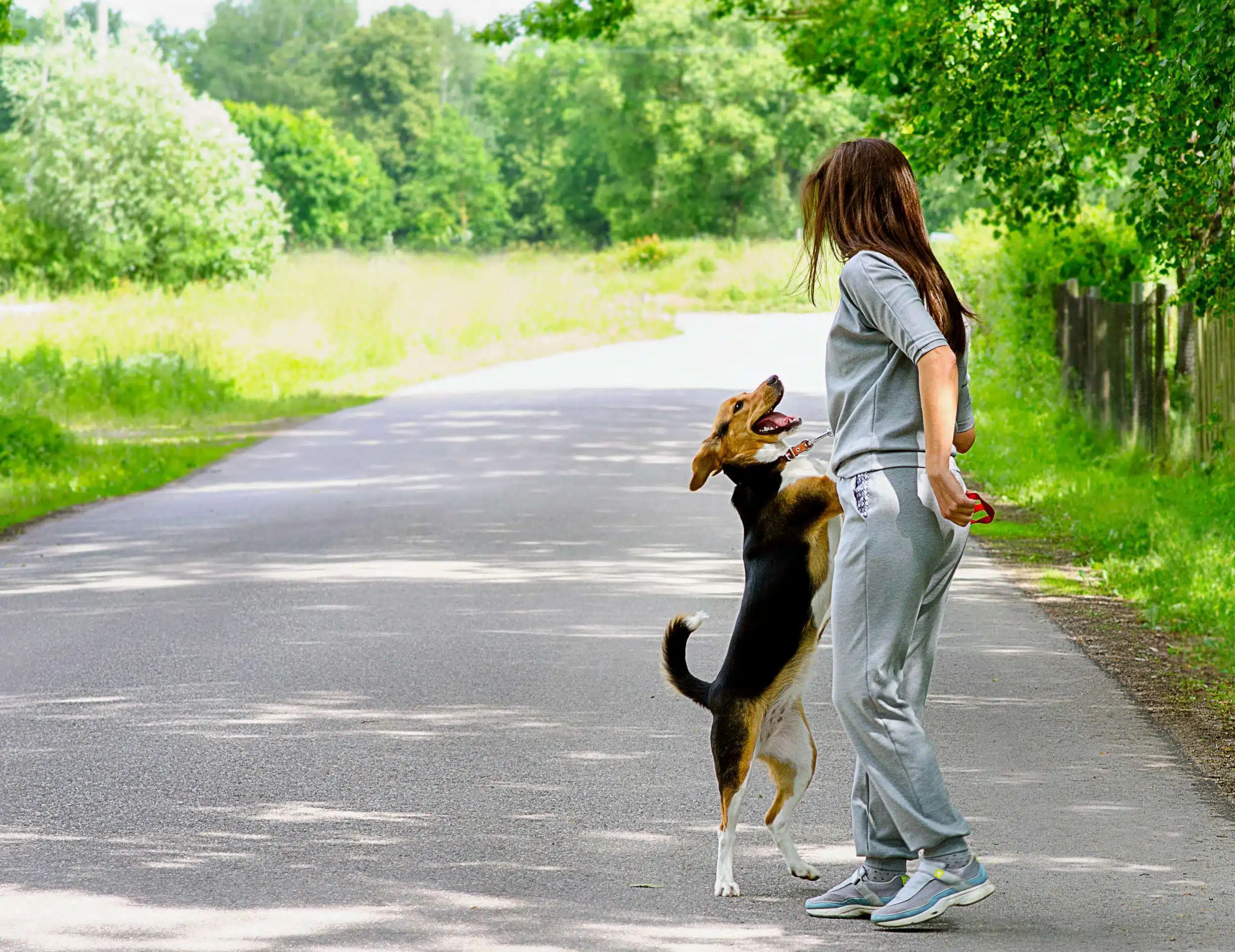How often should I take my dog to the vet? This is a common question for many dog owners. Like humans, dogs benefit significantly from expert medical care throughout their lifetimes. According to the American Veterinary Medical Association, dogs that receive regular veterinary care have a higher chance of living longer, healthier lives. Routine dog check-ups allow veterinarians to catch potential problems before they become serious, saving both your dog’s health and your wallet from costly treatments down the line.
However, the frequency of vet visits depends on many factors, such as the age, breed, and overall health of your furry companion. In this article, we will guide you through the different life stages of your dog and provide valuable insights into how often you should schedule those important veterinary visits.
Puppy Stage
Puppies are adorable bundles of energy and curiosity, but they require special care to ensure a healthy start in life. During the puppy stage, there are several crucial aspects of veterinary care that every dog owner should be aware of.
Vaccinations and Deworming
Vaccinations are essential for protecting puppies against contagious diseases such as parvovirus, distemper, and rabies. Your vet will develop a customized vaccination plan for your puppy, taking into account factors such as breed, age, and the prevalence of diseases in your area. Additionally, deworming is a vital preventive measure to eliminate internal parasites that can harm your puppy’s health.
Initial Puppy Check-Up
Wondering when to take a puppy to the vet after bringing home? Shortly after bringing your new puppy home, it is crucial to schedule an initial health check-up with a veterinarian. This comprehensive puppy physical exam allows the vet to assess your puppy’s overall health, check for congenital abnormalities, and address any concerns you may have. The veterinarian will also conduct a puppy wellness exam and guide you on nutrition, training, and general puppy care. You may also list down any other questions to ask the vet about the new puppy.
Recommended Frequency: Every 3–4 Weeks Until 16 Weeks Old
During the puppy stage, regular checkups and veterinary visits are particularly important as puppies grow and develop rapidly. It is generally recommended to take your puppy to the vet every 3-4 weeks until they reach around 16 weeks of age. These frequent visits enable the veterinarian to closely monitor your puppy’s growth, administer vaccinations, address any emerging health issues, and provide guidance on training and socialization. To keep your puppy check-ups on track, you may create a puppy vet visit schedule.
By prioritizing regular veterinary care during the puppy stage, you can lay a strong foundation for your dog’s lifelong health and well-being. Stay tuned for the next sections of this article, where we will explore the veterinary care needs during adulthood and the senior years of your canine companion’s life, thus providing valuable insights on routine wellness exams
Adult Stage
As your dog ages and transitions from the puppy stage to adulthood, their veterinary care needs will evolve. Regular adult dog vet visits are still crucial during this stage to ensure your furry friend’s ongoing health and well-being.
Routine Check-Ups and Vaccinations
Routine check-ups are vital for adult dogs to detect any potential health issues early on and maintain their overall wellness. During these appointments, your veterinarian will perform a comprehensive and thorough physical exam, evaluate your dog’s weight, and dental well-being, and address any queries or worries you might have. Vaccinations are also an essential part of adult dog care to protect against diseases such as rabies, distemper, and leptospirosis. Your vet will establish a suitable vaccination schedule by considering your dog’s lifestyle and factors that may pose risks to its health.
Preventative Care
Preventative care plays a significant role in keeping adult dogs healthy and protected from common canine diseases and parasites. Fleas, ticks, intestinal parasites, and heartworms pose continuous risks, which can result in discomfort and potential health complications. Your vet can suggest suitable preventive medications, like flea and tick treatments and heartworm preventives, personalized to address your dog’s specific requirements.
A preventative vet visit will avoid unexpected vet bills significantly over time.
Recommended Frequency: Once a Year for Healthy Dogs
For healthy adult dogs, it is generally recommended to schedule vet visits once a year. These annual dog check-ups allow veterinarians to monitor your dog’s overall health, update vaccinations, and provide preventive care. However, keep in mind that some dogs may require more frequent visits due to specific health conditions or lifestyle factors. The best frequency for your dog’s veterinary visits must be decided in consultation with your vet.
Senior Stage
Now that you are aware of the importance of regular veterinary visits for your puppy, you might be wondering how often should I take older dogs to the vet when they are senior. Older dogs need extra care and attention as they get older because they are more vulnerable to certain illnesses. The senior stage of your dog’s life calls for regular veterinary visits and specific screenings to ensure their well-being.
Age-Related Health Issues and Concerns
Senior dogs often experience age-related health issues that require careful monitoring and management. These can include arthritis, dental problems, cognitive decline, and organ dysfunction. Regular veterinary examinations enable the timely identification of such conditions and facilitate the implementation of necessary interventions to uphold your dog’s quality of life.
Screening for Diseases
Screening for common senior dog diseases becomes particularly important during this stage. Your veterinarian may recommend screenings for conditions such as arthritis, cancer, kidney disease, and heart disease. These screenings often involve blood and urine tests, X-rays, and other diagnostic tests and tools to detect and manage potential health problems.
Recommended Frequency: Every 6 Months for Senior Dogs
To ensure comprehensive care for senior dogs, it is generally advised to schedule veterinary visits every six months. These more frequent check-ups allow for closer monitoring of your dog’s health status, early detection of age-related issues, and timely adjustments to their healthcare and wellness plan throughout. Regular dental examinations, weight management, and tailored nutritional advice are also crucial components of senior dog care.
Remember, each dog is unique, so it’s essential to work closely with your veterinarian to create a personalized care plan based on your dog’s individual needs and health history.
When to Take Pregnant Dog to Vet?
Pregnant adult dogs typically require specialized veterinary care to ensure a healthy pregnancy and safe delivery. Regular veterinary check-ups are essential during this stage to monitor the mother’s health and the development of the puppies.
Prenatal Care and Health Monitoring
During prenatal check-ups, your veterinarian will closely monitor the pregnant dog’s health and the progression of the pregnancy. They will conduct thorough examinations, including ultrasounds, to assess the puppies’ growth and detect any potential complications. The vet will also provide guidance on proper nutrition, exercise, and any necessary supplements to support the mother’s well-being and the healthy development of the puppies.
Vaccinations and Parasite Control
Ensuring the mother dog’s vaccinations are up to date is crucial for protecting both her and the unborn puppies. Vaccinations can help prevent diseases that may pose a risk during pregnancy or be transmitted to the puppies after birth. Additionally, parasite control is essential to prevent infestations that could harm the mother or her developing puppies. Your vet will recommend safe and suitable preventive measures to address parasites such as fleas, ticks, and worms.
Preparing for Delivery and Postnatal Care
As the pregnancy progresses, your veterinarian will guide you on what to expect during the delivery process and offer advice on creating a safe and comfortable birthing environment. They can also provide instructions on postnatal care, including monitoring the mother’s health, ensuring proper nutrition for nursing, and administering necessary vaccinations or treatments to newborn puppies.
Recommended Frequency: Follow Veterinary Guidance
If you are unsure “When should I take my pregnant dog to the vet?” follow veterinary guidance as the frequency will depend on the specific circumstances. It is important to consult with your veterinarian to establish an appropriate schedule for prenatal care and determine if any additional visits are necessary based on the dog’s health, breed, and potential complications.
By seeking regular veterinary care and following professional advice, you can ensure the well-being of both the pregnant dog and her precious puppies.
How Often Should I Take My Dog to the Vet: Factors Influencing Veterinary Visits
There are a few things to think about when deciding how frequently your dog should visit the vet. These factors can vary from breed-specific health concerns to pre-existing medical conditions and lifestyle/environmental factors.
Breed-Specific Health Concerns
Different dog breeds have varying predispositions to certain health conditions. Certain breeds may have an increased susceptibility to hip dysplasia, heart disease, or specific genetic disorders. For instance, Golden Retrievers have a higher risk of hip dysplasia, certain cancers, and heart conditions. German Shepherds can be susceptible to hip and elbow dysplasia, genetic disorders like hemophilia, and degenerative myelopathy. Bulldogs often face respiratory issues and joint problems. Labrador Retrievers can develop obesity-related issues, whereas Dachshunds have a predisposition to intervertebral disc disease and skin conditions.
Understanding your dog’s breed-specific health concerns can help you anticipate and address potential issues promptly, necessitating more frequent veterinary visits.
Pre-Existing Medical Conditions
If your dog has pre-existing medical conditions, such as diabetes, allergies, or arthritis, it may require more frequent veterinary check-ups and ongoing treatment. Regular monitoring and adjustments to their treatment plan can help them manage these conditions effectively and improve their overall quality of life.
Lifestyle and Environmental Factors
How often you take your dog to the vet for wellness exams will also be determined by your dog’s lifestyle and environment. Active dogs that participate in agility training, sports, or frequent outdoor activities may require more frequent check-ups and preventive care. Similarly, dogs living in regions with a higher prevalence of tick-borne diseases or environmental hazards may need additional veterinary attention.
Oral Health Problems
American Animal Hospital Association (AAHA) has set out several recommendations for dog dental care in their Guidelines for Dogs including regular oral examinations for all dogs, at least annually for most dogs, but more often for those at higher risk of dental disease.
Your regular wellness exams should include a look at your dog’s teeth to ensure are in a healthy condition. It is recommended at-home Dental Care to include daily tooth brushing. It’s crucial to use a toothpaste that’s specifically designed for pets.
Dogs Eat Poop
Should your dog begin consuming feces, it’s advisable to seek guidance from your veterinarian to eliminate potential health issues. These could include parasites, nutritional deficiencies low-calorie diets (wherein your vet might recommend dietary supplements), or malabsorption disorders. This is something that should be discussed at your pup’s annual wellness exams.
When to Take Dog to Emergency Vet: Signs That Require Immediate Veterinary Attention
While regular veterinary visits are important for preventive care, there are instances when immediate veterinary attention is crucial. Being aware of the signs that require prompt action can help ensure the well-being and safety of your dog.
Emergencies
Certain emergencies require immediate veterinary attention to prevent life-threatening situations. These emergencies can include choking, ingestion of toxic substances, or severe allergic reactions. If you think your dog may be having a medical emergency, call your vet or an emergency veterinary clinic straight away.
Severe Injuries or Sudden Behavioral Changes
If your dog experiences a severe injury, such as a broken bone or a deep laceration, immediate veterinary attention is necessary. Sudden and significant changes in your dog’s behavior, such as extreme lethargy, disorientation, or aggression, should also be evaluated promptly by a veterinarian as they may indicate an underlying medical condition.
Prompt veterinary attention can have a substantial impact on the outcome for your beloved companion.
Bonus Tips: How Often Should I Take My Dog to the Vet?
● Take your dog to the vet regularly, so that your veterinarian becomes familiar with your dog’s unique needs, enabling them to provide tailored advice and treatments.
● Prepare a list of questions to ask the vet during visits so that you address specific health and nutritional needs, preventive care, and dietary recommendations.
● Ensure open and honest discussions about your dog’s health to ensure accurate diagnoses and effective treatment plans.
● Maintain a good rapport with your vet so that you can easily seek guidance during challenging times, enhancing the overall care experience for your dog.
Final Thoughts: How Often Should I Take My Dog to the Vet?
Regular veterinary care is of utmost importance in preserving your dog’s health and well-being. By following general guidelines based on life stages, you can proactively address your pet’s health and concerns and ensure timely interventions. Whether you have an energetic puppy bouncing around or a wise senior companion by your side, understanding the importance of regular veterinary care and the recommended frequency of visits will empower you to be a proactive and responsible dog owner.
Remember, a healthy dog is a happy dog, and regular veterinary care is the key to ensuring their well-being throughout their life journey.
Interesting Reads:
Dog Behavior Change After Vaccination: What to Expect?















Get involved!
Comments